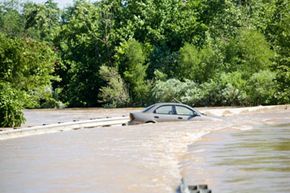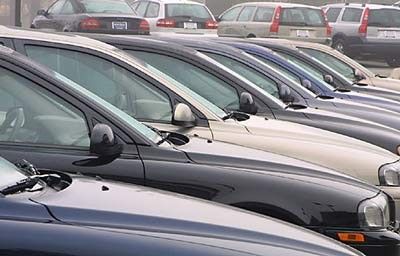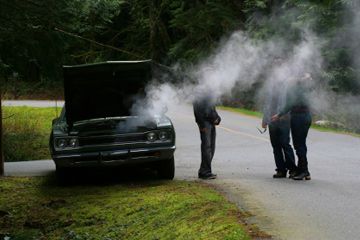A good dealer can restore flood-damaged cars so that they look almost new, but don't let the good looks fool you. Buying a flood-damaged car comes with a lot of risk. However, a wet past doesn't necessarily make a used car a bad buy, either. So, how do you decide whether to gamble on a car with a watery history? There are several important factors to consider.
First, how deeply was the car submerged? If the water level wasn't deep enough to wreak havoc with the electronics, the car may end up with rust and corrosion but isn't always doomed for major operational issues. If the submersion was deep, then even if there aren't electrical problems now, there could be danger down the road.
Advertisement
How long was the car under the water? The longer the vehicle remained submerged, the greater the damage.
What kind of water flooded the car? If it was salt water, the corrosion will occur much more aggressively than if it was fresh water.
Does the automobile's title carry a "Flood" or "Salvage" stamp? If so, then someone (an insurance company, a bank or an owner) at one time considered the car to be irreparable. Unless a major effort has been spent on repairs, you can expect problems.
If you're looking for short-term use of a car, a flood-damaged car may be a sensible solution. A good candidate for a flood-damaged car may be a recent college grad who needs a car just long enough to get to job interviews, and who plans to buy a new car after employment. Snowbirds, or retirees who live in the north and spend winters in warmer climates, may want a car they can leave at their southern home for the summers, and a flood-damaged car may be just the ticket. Salvage cars are also popular among car enthusiasts who enjoy buying damaged cars on the cheap and then rebuilding them with new parts.
Any car that's been subjected to water should be sold well below market value, and unless the dealership can prove extensive restoration, you should be offered a dream deal. After all, when buying a flood-damaged car, you're assuming a substantial financial risk that major repairs could be necessary. Make sure that you don't pay more for the car than you're willing to pay if the worst-case scenario occurs. Also know that when a car is flooded, typically, the manufacturer's warranty is voided.
When deciding whether or not the price is reasonable, be sure to factor in resale -- or, more likely, no resale. Most people agree that flood-damaged cars will have basically no market value for you to resell them later.
Advertisement


